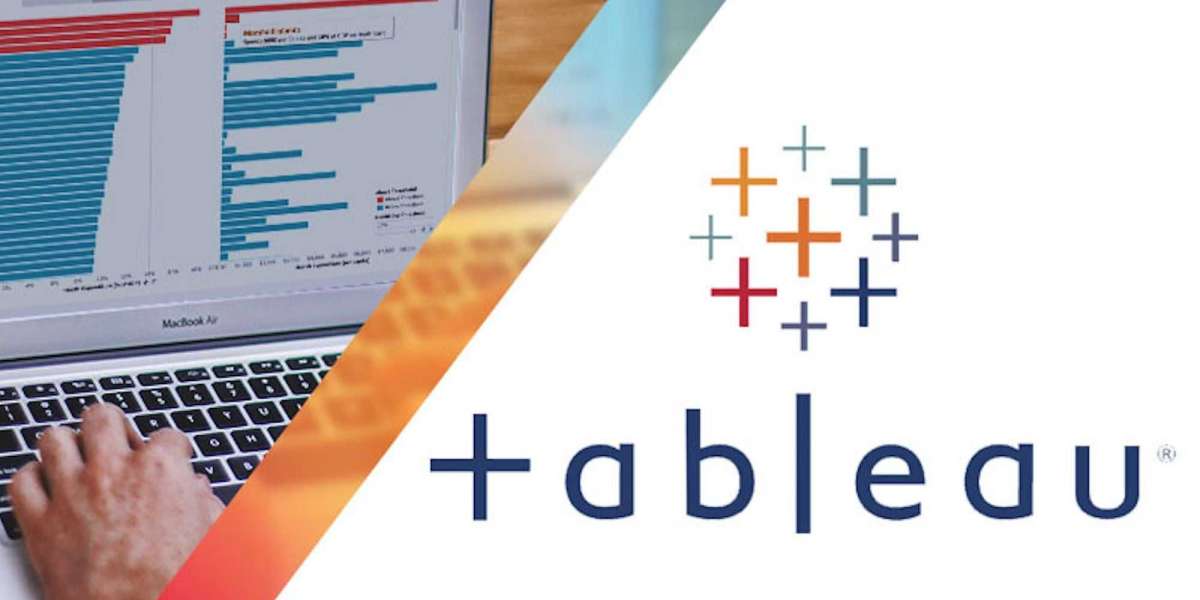Embarking on a journey to master Tableau can be a game-changer for your career in data visualization and analytics. A comprehensive Tableau course offers structured learning that equips you with the skills needed to harness the full potential of this powerful tool. If you’re considering enrolling in a Tableau Course In Patna and are wondering what to expect, this beginner’s guide will walk you through the key components and learning outcomes of a thorough Tableau training program.
Overview of Tableau and Its Importance
Introduction to Tableau
Tableau is a leading data visualization tool that allows users to create interactive and shareable dashboards. It helps transform raw data into meaningful insights through visual representations like charts, graphs, and maps. Whether you are a business analyst, data scientist, or someone looking to enhance your data visualization skills, mastering Tableau can greatly benefit your career.
Why a Comprehensive Course Matters
A comprehensive Tableau course provides structured learning and hands-on experience, essential for developing proficiency in the tool. It ensures that you understand both the fundamentals and advanced features of Tableau, enabling you to create effective data visualizations and dashboards that drive business decisions.
Course Structure and Content
Introduction to Data Visualization
Most comprehensive Tableau courses start with an introduction to data visualization principles. You’ll learn about the importance of data visualization, the different types of visualizations, and how to choose the right one for your data. This foundational knowledge is crucial for understanding how to effectively present data in Tableau.
Getting Started with Tableau
The initial modules of a Tableau course will typically cover the basics of Tableau’s interface and functionalities. You’ll be introduced to the Tableau workspace, including data connections, worksheets, dashboards, and stories. Learning how to navigate Tableau’s environment will help you feel comfortable using the tool from the outset.
Connecting to Data Sources
One of the core skills taught in a Tableau course is how to connect Tableau to various data sources. You’ll learn how to import data from different formats, such as Excel spreadsheets, SQL databases, and cloud-based sources. Understanding how to connect to and manage data sources is essential for creating accurate and meaningful visualizations.
Creating Basic Visualizations
With a solid understanding of the interface and data connections, the course will guide you through creating basic visualizations. You’ll learn how to build charts, graphs, and maps, and how to customize these visualizations to suit your needs. This stage of the course focuses on developing your ability to present data clearly and effectively.
Advanced Features and Techniques
Building Interactive Dashboards
As you progress in the course, you’ll delve into more advanced features, such as creating interactive dashboards. You’ll learn how to combine multiple visualizations into a single dashboard, add interactive elements like filters and parameters, and design dashboards that allow users to explore data dynamically.
Utilizing Calculations and Formulas
Advanced Tableau courses cover the use of calculated fields and formulas to perform complex data analysis. You’ll learn how to create custom calculations, aggregations, and aggregations to enhance your data analysis capabilities. Mastering these techniques will enable you to generate deeper insights from your data.
Implementing Data Blending and Joins
Data blending and joining are crucial for combining data from different sources. The course will teach you how to blend data from multiple datasets and use joins to merge tables effectively. These skills are essential for creating comprehensive reports that reflect a holistic view of your data.
Practical Applications and Real-World Scenarios
Hands-On Projects
A comprehensive Tableau course includes hands-on projects that simulate real-world scenarios. These projects allow you to apply what you’ve learned to actual business cases, such as analyzing sales performance, customer trends, or financial data. Working on practical projects helps reinforce your skills and build a portfolio of work that showcases your abilities.
Case Studies and Examples
The course will often feature case studies and examples from various industries to demonstrate how Tableau can be used to solve real-world problems. Analyzing these case studies helps you understand the application of Tableau in different contexts and provides insights into best practices for data visualization.
Certification and Career Advancement
Preparation for Certification Exams
Many comprehensive Tableau courses prepare you for Tableau certification exams. Certification is a valuable credential that demonstrates your expertise in Tableau and can enhance your career prospects. The course will typically include review sessions and practice exams to help you prepare for the certification process.
Career Benefits
Completing a Tableau course can significantly boost your career in data visualization and analytics. With the skills and knowledge gained from the course, you’ll be well-positioned for roles such as data analyst, business intelligence analyst, and data visualization specialist. Additionally, certification can make you a more competitive candidate in the job market.
Support and Resources
Access to Instructors and Peers
A comprehensive Tableau course often provides access to experienced instructors who can offer guidance, answer questions, and provide feedback on your work. Additionally, you’ll have the opportunity to interact with fellow students, share experiences, and collaborate on projects, which can enhance your learning experience.
Learning Materials and Resources
The course will typically include a range of learning materials, such as video tutorials, reading materials, and practice exercises. These resources are designed to support your learning and help you build a strong foundation in Tableau.
Also Read: What Is Artificial Intelligence In Hindi
Conclusion
Enrolling in a comprehensive Tableau course in Patna offers numerous benefits for those looking to advance their skills in data visualization. From mastering the basics and exploring advanced features to applying your knowledge through hands-on projects and preparing for certification, a well-structured course provides the tools and support needed to excel in Tableau.
By investing in a Tableau course, you gain the skills to transform raw data into meaningful insights and enhance your ability to communicate data effectively. Whether you’re aiming to advance your career, improve your data analysis capabilities, or achieve certification, a comprehensive Tableau course equips you with the knowledge and experience needed to succeed in the field of data visualization.



